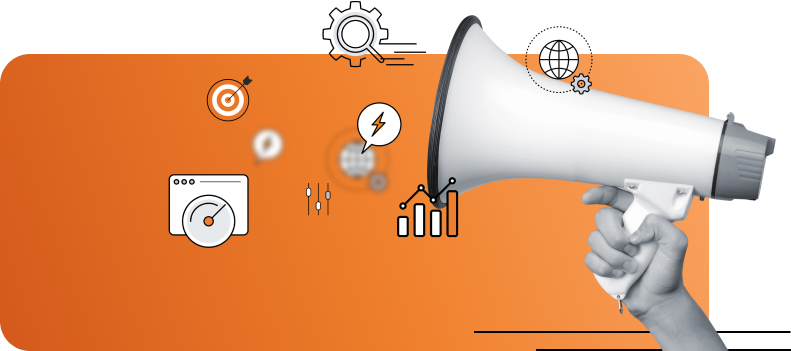In the labyrinth of the digital entrepreneurial world, Shopify is the thread poised to guide you through the ominous warren of online selling.
But what use is a guide without a map? For Shopify masters intent on cracking the code of Ecommerce conversions, Google Analytics emerges as the cartographer, stitching together the path to triumph with data and insights.
Unveil the trove of tracking solutions available to you in Google Analytics to Shopify, and watch as your online venture transforms into a conversion-measuring marvel, calibrated for success in the fiercely competitive digital markets.
The Necessity of Tracking Your Shopify Sales in Google Analytics
In the realm of competitive ecommerce, tracking your Shopify sales with Google Analytics emerges as a critical strategy for staying ahead.
This integration empowers merchants to set precise Shopify analytics goals and channel their efforts to enhance Ecommerce conversions. Here is a list of pivotal advantages this confluence offers:
- Comprehensive Insights
- Conversion Optimization
- Strategic Budget Allocation
- Tailored User Experiences
- Agile Strategic Planning
By integrating Google Analytics into your Shopify operations, your business can sharpen its competitive edge, turning Shopify transactions into a wellspring of SEO prosperity and robust business intelligence.
Integrating Google Analytics with Shopify – The Set-Up
When integrating Google Analytics with Shopify, meticulous execution is paramount. This synergy grants astute businesses the capability to examine their Ecommerce conversions with unparalleled precision.
The set-up process, while intricate, is fundamental for accurately tracking Shopify conversions and refining Shopify analytics goals. The ABCs of Integration necessitate detailed attention to the following pivotal elements:
- Account Creation and Property Setup in Google Analytics
- Activation of Ecommerce Setting
- Linking Google Analytics to your Shopify Account
- Implementation of Tracking Code
In pursuit of excellence in tracking Ecommerce conversions, one must tailor these settings to the intricacies of one’s digital storefront, achieving a level of customization that can propel a business to the zenith of Shopify analytics goals.
Post-setup, rigorous Testing, and Troubleshooting ensure the reliability of your configuration. Ascertain the efficacy of event tracking, funnel visualization, and goal completion metrics to preclude any inaccuracies that could dampen your competitive edge.
Setting Up Goals and Funnels – The Core of Conversion Tracking
In the realm of e-commerce, adeptly setting up goals and funnels in Shopify analytics emerges as a critical juncture in unraveling the intricacies of Shopify conversions tracking. To precision-engineer your e-commerce business for success, consider these steps with exactitude:
- Defining Your Goals
- Constructing Funnels for Insightful Pathway
- The Common Pitfalls and Remedies
By harnessing the synergy between Google Analytics and Shopify, one can construct a fortified framework for tracking Ecommerce conversions that is not only robust but replete with the precision necessary for a competitive edge in the e-commerce landscape.
Applying UTM Tags for Granular Campaign Tracking
In the competitive arena of ecommerce, mastering the art of tracking Ecommerce conversions emerges as a vital key to unlocking the full potential of conversion analytics.
UTM tags serve as beacons of insight within the intricate web of Shopify analytics goals, illuminating the path toward strategic refinement and search engine optimization.
By meticulously applying these tags to your campaigns, they allow for an unparalleled level of precision in parsing the vast streams of data funneling through Google Analytics into actionable intelligence. Consider the following critical checkpoints for successful UTM implementation:
- Clarity in Purpose
- Consistency in Tagging
- Strategic Structuring
By entrusting these robust snippets of code with the hefty responsibility of parsing campaign performances, professionals can transcend beyond surface-level metrics, venturing into the depths of data-driven enhancement.
It is here, amongst the filaments of fine-tuned tracking, where the crucible of Shopify conversions awaits, promising advancements in marketing intelligence and heightened Shopify ecommerce success.
Diving Deep with Custom Reports and Segments
In an era marked by boundless data, the meticulous use of custom reports and segments has become indispensable for ecommerce entities seeking to bolster their conversions, particularly within the Shopify ecosystem.
Indeed, the judicious integration of Shopify analytics goals into your comprehensive review strategy can markedly delineate the trajectory of your Ecommerce conversions. Prospering in this domain necessitates a trifold approach:
- Illuminating the Depths
- The Art of Precision
- Navigating Between Insight and Oversight
Leveraging tools such as Google Analytics to Shopify can exponentially magnify your prowess in tracking Ecommerce conversions. In summation, harnessing these profound tactics allows for not only the aggregation but also the distillation of data into a formidable competitive edge.
Scaling Your Analytics with Apps and Experts
In the modern era of ecommerce, the acumen to discern and leverage data analytics can set you apart in a competitive market.
Enterprises that efficiently scale their analytics by leveraging Shopify Analytics apps and drawing on the expertise of knowledgeable professionals often witness a marked improvement in Shopify conversions.
The integration of Google Analytics to Shopify can become the linchpin for understanding and enhancing your Shopify analytics goals, ultimately resulting in more effective tracking Ecommerce conversions. The crux of this scalable analytics framework involves several key strategies:
- Employing Sophisticated Shopify Analytics Apps
- Harnessing Consultative Expertise
- Strategic Agency Partner Selection
Scaling your analytics with the precision of apps and the acumen of experts is an indispensable strategy to stay at the vanguard of Ecommerce conversions. It’s an investment in data-driven intelligence that propels businesses toward success in the dynamic world of online commerce.
Google Analytics to Shopify isn’t merely about tracking sales; it’s a transformation of digital commerce into a disciplined science. Data is no longer background noise; it’s the orchestra conductor leading the symphony of business strategies.
The avenues of integration, the highways of UTM-tagged campaigns, and the back alleys of customized analytics comprise the topography of an ecommerce empire.
Wield these tools with finesse, continuously refine your approach, and never forget that in the realm of ecommerce, evolution is the currency of the avant-garde.
With Google Analytics as your squire, relentless in its pursuit of data accuracies, and Shopify as your steed, formidable in its adaptability and reach, you stand equipped to conquer the lands of digital commerce.
Embark on this odyssey, track your victories, and as tides turn and empires rise, may your Shopify sales in Google Analytics be a testimony to your entrepôt’s might.








